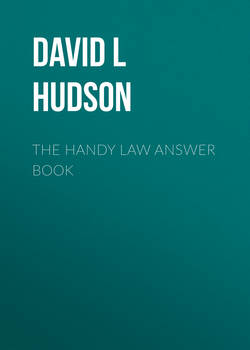Читать книгу The Handy Law Answer Book - David L Hudson - Страница 19
На сайте Литреса книга снята с продажи.
Why did Elbridge Gerry, Edmund Randolph and George Mason refuse to sign the Constitution?
ОглавлениеIronically, Randolph would later refuse to sign the Constitution at the end of the Convention in part because he believed his constituents in Virginia would disapprove of the Constitution. He argued that the people in the states, through their representatives, should have the “full opportunity” to propose amendments to the Constitution. However, during the ratification battle in his home state of Virginia, Randolph fought for its adoption.
Gerry and Mason, key contributors throughout the summer, refused to sign the Constitution in part because it lacked a Bill of Rights. Gerry, the Massachusetts delegate, later wrote: “There is no security in the proferred system, either for the rights of conscience or the liberty of the Press.” For Mason’s part, a few days earlier, he had said: “I would sooner chop off my right hand than put it to the Constitution.”
Mason honestly believed that the system of government would produce either a “monarchy or a corrupt oppressive aristocracy.” He also felt that the “Constitution has been formed without the knowledge or idea of the people.” Mason believed that the delegates had exceeded their authority by secretly creating a powerful national government that would take away the powers of the states.
